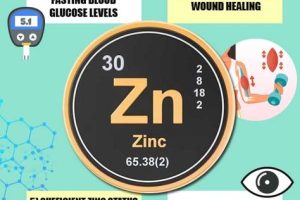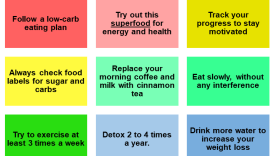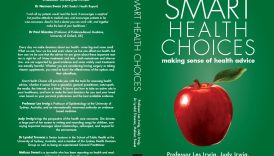From A to Zinc: How Vitamins Can Transform Your Health

Importance of Vitamins
Vitamins play an essential role in maintaining our overall health and well-being. They are organic compounds that our bodies require in small amounts to function correctly, acting as the building blocks for a healthy life. Imagine vitamins as the gears in a well-oiled machine—each one specific in its duty, ensuring everything runs smoothly. Some key functions of vitamins include:
- From A to Zinc: How Vitamins Can Transform Your Health
- Importance of Vitamins
- History of Vitamin Research
- Understanding Vitamins
- Different Types of Vitamins
- Recommended Daily Intake
- Vitamin A: The Vision Vitamin
- Sources of Vitamin A
- Health Benefits of Vitamin A
- Vitamin C: The Immunity Booster
- Role of Vitamin C in the Body
- Natural Sources of Vitamin C
- Vitamin D: The Sunshine Vitamin
- Importance of Vitamin D
- Effects of Vitamin D Deficiency
- B Vitamins: The Energy Boosters
- Types of B Vitamins
- Benefits of B Vitamins for Overall Health
- Vitamin E: The Antioxidant Vitamin
- Functions of Vitamin E
- Sources of Vitamin E
- Zinc: The Essential Mineral
- Importance of Zinc
- Zinc's Role in Immune Function
- Combining Vitamins for Optimal Health
- Best Vitamin Combinations
- Potential Risks of Vitamin Interactions
- Boosting immunity: Vitamins like C and D are crucial for immune health.
- Promoting vision: Vitamin A is vital for good eyesight.
- Supporting energy production: B vitamins help convert food into energy.
Without adequate vitamins, our bodies can face serious health challenges.
History of Vitamin Research
The quest for understanding vitamins began in the early 20th century when researchers started isolating these critical nutrients. In 1912, Casimir Funk coined the term “vitamine,” derived from “vital amine,” indicating their essential nature for life. Key milestones include:
- Discovery of Vitamin C by Albert Szent-Györgyi in the early 1930s.
- The identification of Vitamin D and its link to bone health.
These historical breakthroughs not only advanced nutritional science but also introduced concepts of dietary supplements, revolutionizing how we approach our health today. The understanding of vitamins keeps evolving, emphasizing their significance in our daily lives.
Understanding Vitamins
Different Types of Vitamins
When it comes to vitamins, the broad spectrum can be classified into two main categories: water-soluble and fat-soluble vitamins. Each type has unique characteristics and functions:
- Water-Soluble Vitamins: These include Vitamin C and the B vitamins. They dissolve in water and are not stored in the body, necessitating daily intake through diet.
- Fat-Soluble Vitamins: This group comprises Vitamins A, D, E, and K. They are stored in the body’s fatty tissues and liver, meaning we can go for longer periods without consuming these vitamins.
Understanding these distinctions can help individuals make better dietary choices to meet their nutritional needs.
Recommended Daily Intake
Knowing how much of each vitamin we need is crucial for maintaining optimal health. The Recommended Dietary Allowances (RDAs) vary by age, gender, and life stage:
- Vitamin A: 900 mcg for men, 700 mcg for women.
- Vitamin C: 90 mg for men, 75 mg for women.
- Vitamin D: 600 IU for most adults.
Taking the time to monitor these intakes can lead to a healthier lifestyle overall. It’s often useful to keep a food diary to track what you’re getting and adjust as needed. Embracing the journey of understanding vitamins is a step toward better health!
Vitamin A: The Vision Vitamin
Sources of Vitamin A
Vitamin A is famously known as the “vision vitamin,” and for good reason. It plays a crucial role in maintaining healthy eyesight, but where can you find this vital nutrient? There are two primary sources of Vitamin A:
- Animal Sources (Retinol): Foods like liver, fish oils, eggs, and dairy products are rich in retinol, the active form of Vitamin A. Personally, I love adding eggs to my breakfast for an extra boost!
- Plant Sources (Carotenoids): Brightly colored fruits and vegetables—think carrots, sweet potatoes, and spinach—contain beta-carotene, which the body converts into Vitamin A. A simple carrot sticks snack can make a significant difference in your intake.
Health Benefits of Vitamin A
The benefits of Vitamin A extend beyond just vision:
- Eye Health: It aids in the production of rhodopsin, a pigment in the retina that helps you see in low light.
- Immune Function: Vitamin A supports the immune system, making you more resilient to infections.
- Skin Health: This vitamin is also critical for maintaining healthy skin and mucous membranes.
Incorporating a variety of sources can ensure you’re getting enough Vitamin A, leading to brighter days and clearer nights ahead!
Vitamin C: The Immunity Booster
Role of Vitamin C in the Body
Vitamin C is often touted as a superhero nutrient, especially when it comes to boosting immunity. Its role in the body goes far beyond mere illness prevention. This powerful antioxidant helps protect cells from damage caused by free radicals, while also playing a pivotal part in collagen synthesis, which is essential for healthy skin, joints, and bones. I remember when I was recovering from a cold, my grandmother insisted on making fresh orange juice—her go-to remedy that seemed to brighten my spirits instantly! Here are some key roles of Vitamin C:
- Immune System Support: It enhances the production and function of white blood cells, the body’s defenders against pathogens.
- Wound Healing: Adequate Vitamin C levels are necessary for faster wound recovery, as it aids in collagen production.
Natural Sources of Vitamin C
To reap these benefits, it’s crucial to include Vitamin C-rich foods in your diet. Some superb natural sources include:
- Citrus Fruits: Oranges, lemons, and grapefruits are classic examples.
- Berries: Strawberries and blueberries pack a punch of Vitamin C.
- Vegetables: Bell peppers, broccoli, and kale also contribute significantly.
Incorporating these delicious foods can make a noticeable difference in your health, especially during those colder months when illness seems to linger!
Vitamin D: The Sunshine Vitamin
Importance of Vitamin D
Often referred to as the “sunshine vitamin,” Vitamin D holds a unique place among nutrients due to its ability to be synthesized in the skin upon exposure to sunlight. This vitamin is crucial for regulating calcium and phosphorus levels in the body, which are fundamental for maintaining healthy bones and teeth. I recall a sunny day at the beach when my friend emphasized taking a break for sun exposure—it turns out he was spot on regarding the benefits! Key functions of Vitamin D include:
- Bone Health: It helps in the absorption of calcium, reducing the risk of osteoporosis and fractures.
- Mood Regulation: Emerging research suggests Vitamin D might also play a role in maintaining a positive mood and warding off depression.
Effects of Vitamin D Deficiency
Unfortunately, many individuals face Vitamin D deficiency, mostly due to limited sun exposure or dietary insufficiency. Symptoms of deficiency can be subtle, but they may include:
- Fatigue: A general sense of tiredness and lethargy.
- Bone Pain: Discomfort or pain in your bones.
- Increased Risk of Illness: A weakened immune system, leading to more frequent infections.
Incorporating Vitamin D into your life, whether through sunshine, food, or supplements, can be pivotal for overall health. Regular check-ups can help ensure your levels are where they need to be!
B Vitamins: The Energy Boosters
Types of B Vitamins
B vitamins are a group of essential nutrients that play a significant role in energy production and overall well-being. Each of the eight B vitamins offers unique benefits and functions in the body. Here’s a quick rundown:
- B1 (Thiamine): Supports metabolism and nerve function.
- B2 (Riboflavin): Important for energy production and skin health.
- B3 (Niacin): Helps convert food into energy and maintain a healthy nervous system.
- B5 (Pantothenic Acid): Involved in synthesizing coenzyme A, essential for fatty acid metabolism.
- B6 (Pyridoxine): Vital for amino acid metabolism and red blood cell production.
- B7 (Biotin): Crucial for glucose metabolism and maintaining healthy hair and nails.
- B9 (Folate): Essential for DNA synthesis and cell division, especially during pregnancy.
- B12 (Cobalamin): Important for nerve function and red blood cell formation.
Benefits of B Vitamins for Overall Health
B vitamins not only provide energy but also contribute to various aspects of health:
- Energy Level: They help convert carbohydrates into glucose, fueling your body.
- Mental Clarity: Many B vitamins support brain health and mood regulation.
- Heart Health: Certain B vitamins, like B6, B12, and folate, can reduce homocysteine levels, lowering the risk of heart disease.
Integrating B vitamins into your diet, through sources like whole grains, legumes, meat, and leafy greens, can greatly enhance your overall vitality. Staying energized and focused can truly impact your daily life!
Vitamin E: The Antioxidant Vitamin
Functions of Vitamin E
Vitamin E is widely celebrated as the “antioxidant vitamin,” and its functions are robust and vital for maintaining health. As a powerful antioxidant, Vitamin E helps protect cells from oxidative stress caused by free radicals, which can lead to chronic diseases. I still remember the time I tried a new skincare routine that included Vitamin E oil, and I was amazed by how revitalized my skin felt! Some key functions of Vitamin E include:
- Cell Protection: Neutralizes free radicals, reducing the risk of cell damage.
- Immune Support: Enhances immune response, making the body more resilient to infections.
- Skin Health: Promotes skin healing and can even help reduce the appearance of scars.
Sources of Vitamin E
To reap the benefits of this essential vitamin, it’s important to incorporate Vitamin E-rich foods into your diet. Here are some natural sources to consider:
- Nuts and Seeds: Almonds, sunflower seeds, and hazelnuts are great options.
- Vegetable Oils: Wheat germ oil, sunflower oil, and safflower oil provide ample Vitamin E.
- Green Leafy Vegetables: Spinach and kale also pack a punch of this nutrient.
By making these foods a part of your daily meals, you can easily boost your Vitamin E intake and support your overall health!
Zinc: The Essential Mineral
Importance of Zinc
Zinc is often overlooked, but it’s an essential mineral that plays a vital role in various bodily functions. This trace element is involved in over 300 enzymatic reactions, making it a powerhouse for maintaining health. One of my friends once had a nasty cold and swore by taking zinc supplements; his recovery was impressively quick, which sparked my curiosity about this mineral. Some key functions of zinc include:
- Wound Healing: It aids in skin regeneration and repair.
- Protein Synthesis: Zinc is vital for the growth and maintenance of body tissues.
- DNA Synthesis: It’s crucial for cell division and reproduction.
Zinc’s Role in Immune Function
One of the most significant contributions of zinc is its role in bolstering the immune system. It helps in the development and function of immune cells, particularly:
- T-Lymphocytes: These white blood cells are essential for adaptive immunity.
- Antioxidant Activity: Zinc supports antioxidant enzymes that combat oxidative stress.
- Inflammation Regulation: It plays a key role in controlling inflammation, promoting a balanced immune response.
By incorporating zinc-rich foods, such as oysters, beans, and nuts, into your diet, you can significantly enhance your immune health and overall well-being!
Combining Vitamins for Optimal Health
Best Vitamin Combinations
Combining vitamins effectively can enhance their benefits and promote optimal health. Finding the right pairings can make a significant difference in how well your body absorbs and utilizes these nutrients. For instance, pairing Vitamin D with calcium promotes better bone health, a combination I’ve found to be especially helpful during the winter months when I’m less active. Here are some powerful combinations to consider:
- Vitamin C + Iron: This duo enhances iron absorption from plant-based foods.
- B Vitamins + Magnesium: Magnesium supports the function of B vitamins, helping to improve energy levels.
- Zinc + Vitamin A: This pairing can boost immune function and vision health.
Potential Risks of Vitamin Interactions
While combining vitamins can be beneficial, it’s also important to be cautious of potential interactions. Over-supplementation of certain vitamins can lead to adverse effects. For example, taking excessive Vitamin A can impair the absorption of Vitamin E, potentially leading to deficiencies. Additionally, high doses of vitamin K can interfere with blood-thinning medications. To avoid such risks, it’s wise to consult with a healthcare professional before starting any supplementation regimen. Balancing your vitamins and minerals is the key to reaping their full benefits while maintaining overall health!




